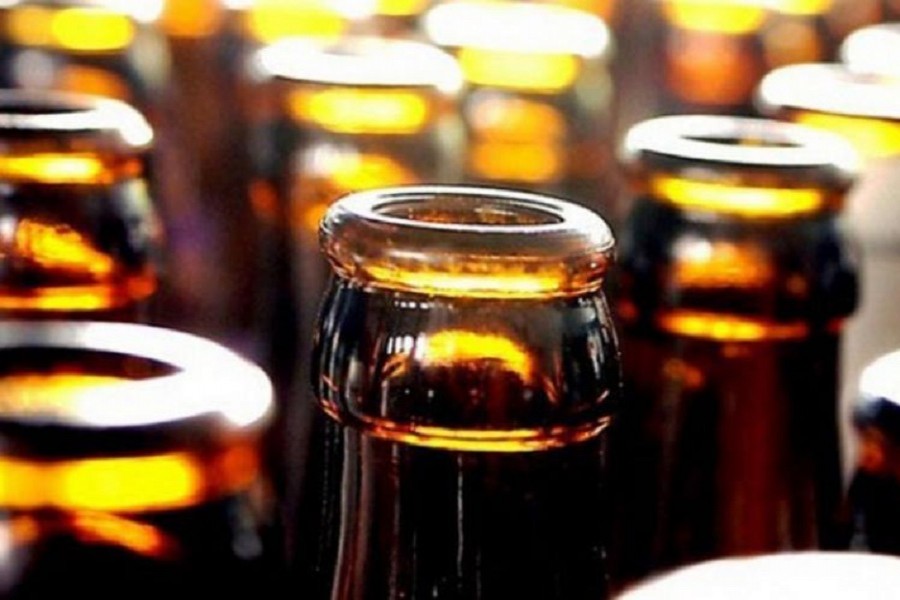Although the death from drinking liquor is nothing new in this part of the world, the number of such casualties reported from as diverse backgrounds as Gulshan's bar/restaurants, Gazipur's holiday resort and Bagura's fringe vicinity this week would be a cause for serious concern. The death of two university students -- one of them a girl -- and another taken seriously ill after drinking what they thought foreign wine and in a separate incident the death from liquor of three other of a party on return from a Gazipur holiday resort swung the law enforcement agencies into action. They have found that the source of liquor is an illegal factory located in Vatara. Wonder of wonders, here the man appointed as the chief chemist used to sell scraps collected from rag pickers. The man has not even passed the secondary school certificate examination.
All this points to two distinct facts: first, clandestine consumption of alcoholic beverage is more widespread than presumed and may have gone up as an after-effect of home confinement induced by the pandemic. Second, liquor ---local or foreign -- is produced illegally by unqualified persons and therefore the quality is always suspect. In case of passing the spurious liquor in the name of reputed foreign brands they commit double crimes. Not only do they make the beverage illegally but also do so deceitfully. Unsuspecting consumers fall victim to their deception. Similarly, as is the case reported from Bogura, rectified spirit was passed as beverage and a few homeopathy pharmacies made brisk business of this substance. It ishardly surprisingtherefore that as many as 33 people lost their lives by drinking such toxic drinks in a month. In the liquor produced by the Vatara factory, the presence of methanol has already been detected. It is so poisonous that a certain amount of it is enough to either damage internal organs or kill a drinker.
That a section of upper class society has its own private wine cellar is an open secret. Anyone can collect foreign brands on payment of high duty. The problem here is that not all are financially well-off to spend so lavishly on drinks. But there are people who have somehow developed the taste but do not have the means to afford those. Usually university students ---both male and female together ---are unlikely to frequent a bar and do partying. If this has already become a trend among a section of students, the young ones have definitely been influenced by their parents or elders.
Then there are drunkard both in the upper and lower classes of society. Some turn to alcoholic drink out of frustration. Once they become addicted, it goes beyond the point of no return. Again, coronavirus may have wrought havoc on many people's psychological make-up. Even before the pathogen's attack, this society had been unstable because of the absence of healthy modes of entertainment and cultural pursuits. Electronic gadgets have become easily available and accessible to the young generation but the contents are so alien to the mores, tradition and values of Bangalee society that its moral fabric is at risk. One simple recipe to stem the rot could be reading books -- classics to be precise. Families must cultivate this highly beneficial habit.


